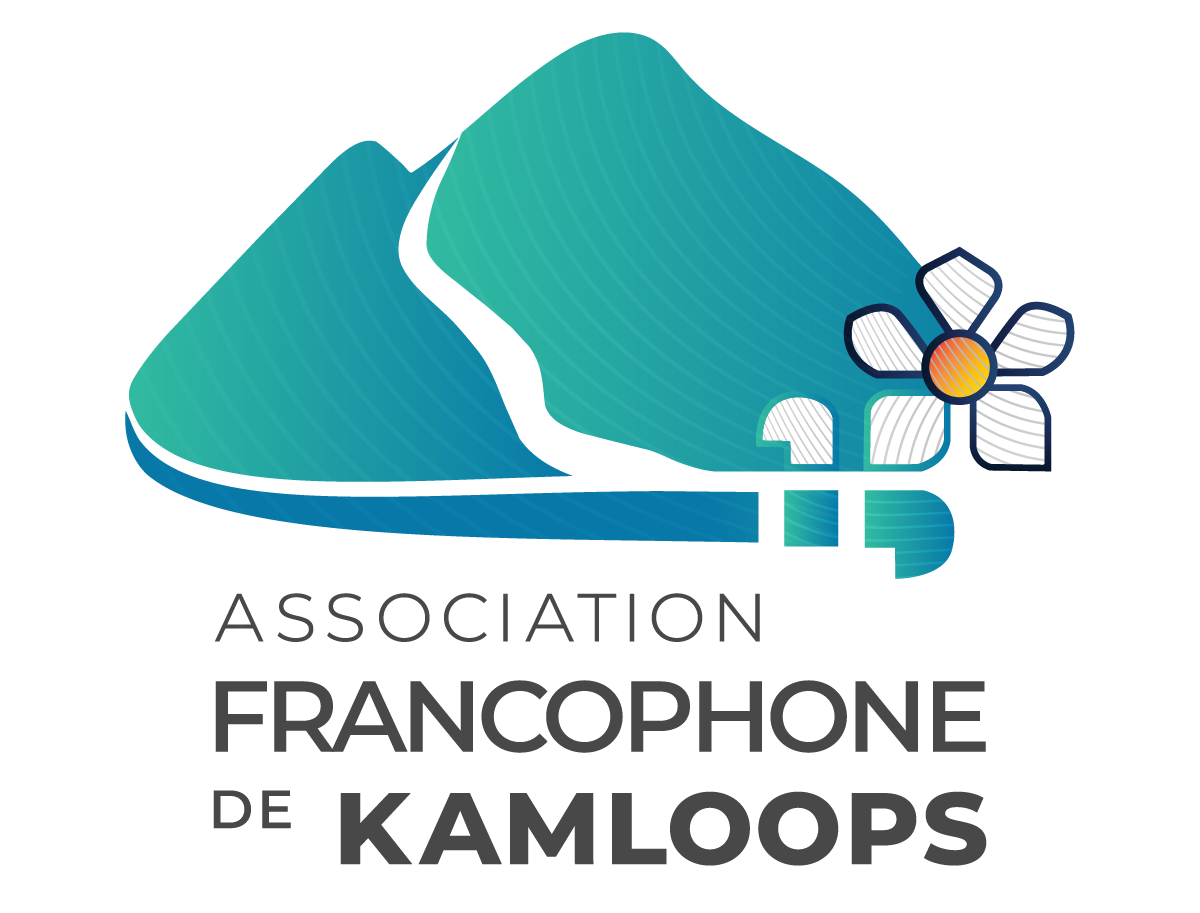Nature & Environment 2022
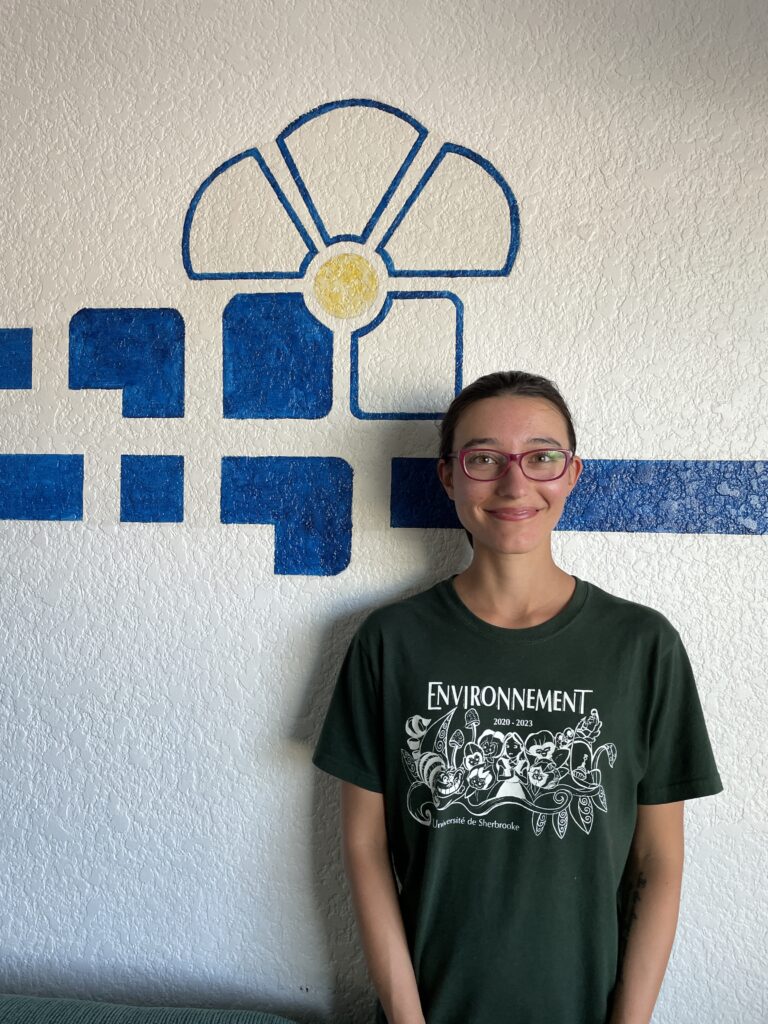
Hello, I’m Vanessa. I am doing my internship with the AFK as the nature and environment coordinator from September to December 2022. I am studying for my Bachelor’s in Environmental Studies at l’Université de Sherbrooke. As part of my mandates, I will propose alternatives for more responsible purchases, I will train the AFK personnel to adopt more eco-friendly habits, and I will develop presentations and activities for school-aged kids and for the francophone community in general.
After School Program
Throughout my internship, the kids in our after-school program had the opportunity to learn to better sort their household waste as well as contribute to the AFK’s domestic compost. Each at their turn, they took responsibility to take out the compost and recycling. Additionally, they became used to taking public transit or active transit (walking) most of the time when we needed to go somewhere. The different activities they participated in throughout the fall months let them reflect on the environmental impacts of their daily choices and on the possible alternatives. The activities they participated in included:
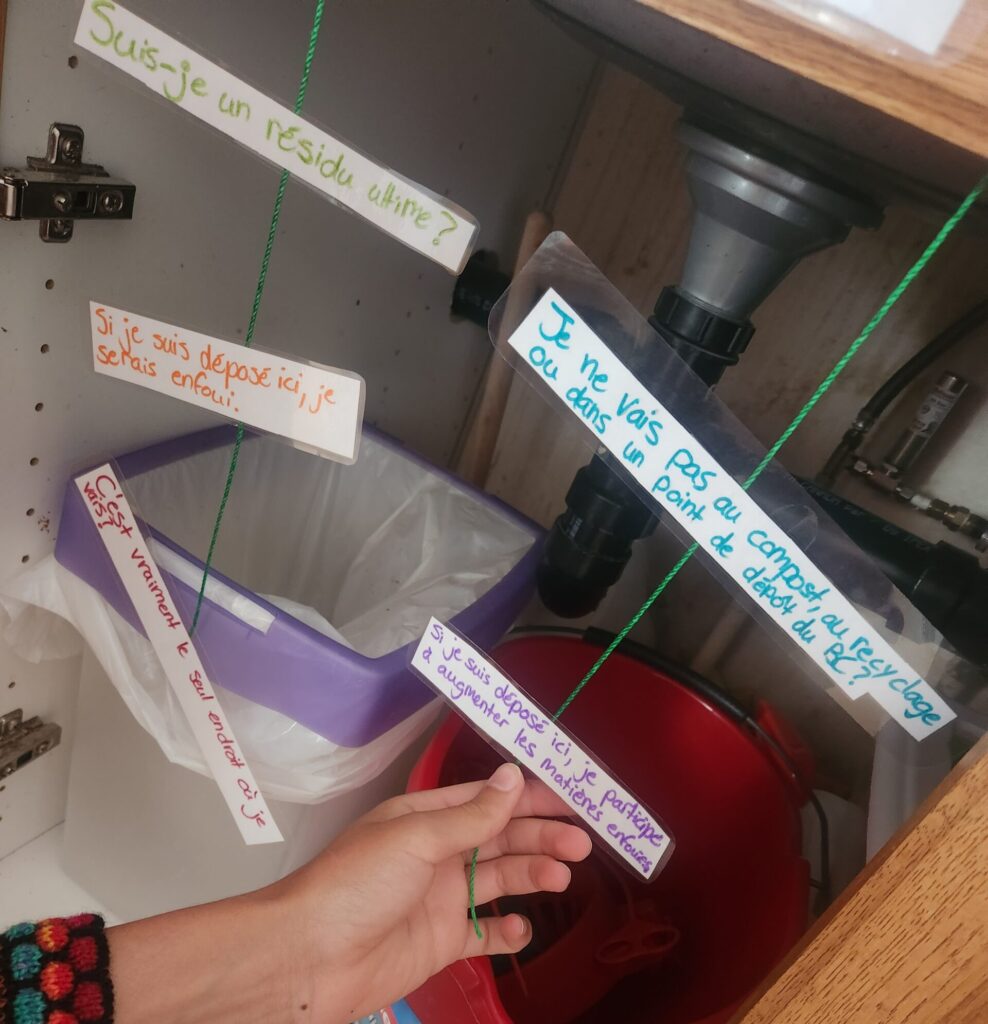
Waste Management
The kids participate in making visual reminders on where to properly put our household waste, such as a sign for what goes in the garbage, one for what goes in the recycling, and what should go in the compost. They also wrote and drew signs for our bins containing materials to be brought to one of the BC recycling depots, such as glass or soft plastics. It’s Waste Wise Kamloops website and application that lets us double check which materials should go where and learn other important information on waste management:
The Compost
Additionally, they were able to learn about the composting process and the positive effects on the environment compared to putting food waste in the landfill. Composting contributes to reducing our individual greenhouse gas (methane) emissions. To do your own domestic compost and to learn more on the subject, here is a great resource:
If you don’t have room to start your own domestic compost, don’t worry. You can participate in Share Waste and bring your food waste to a participating neighbour.
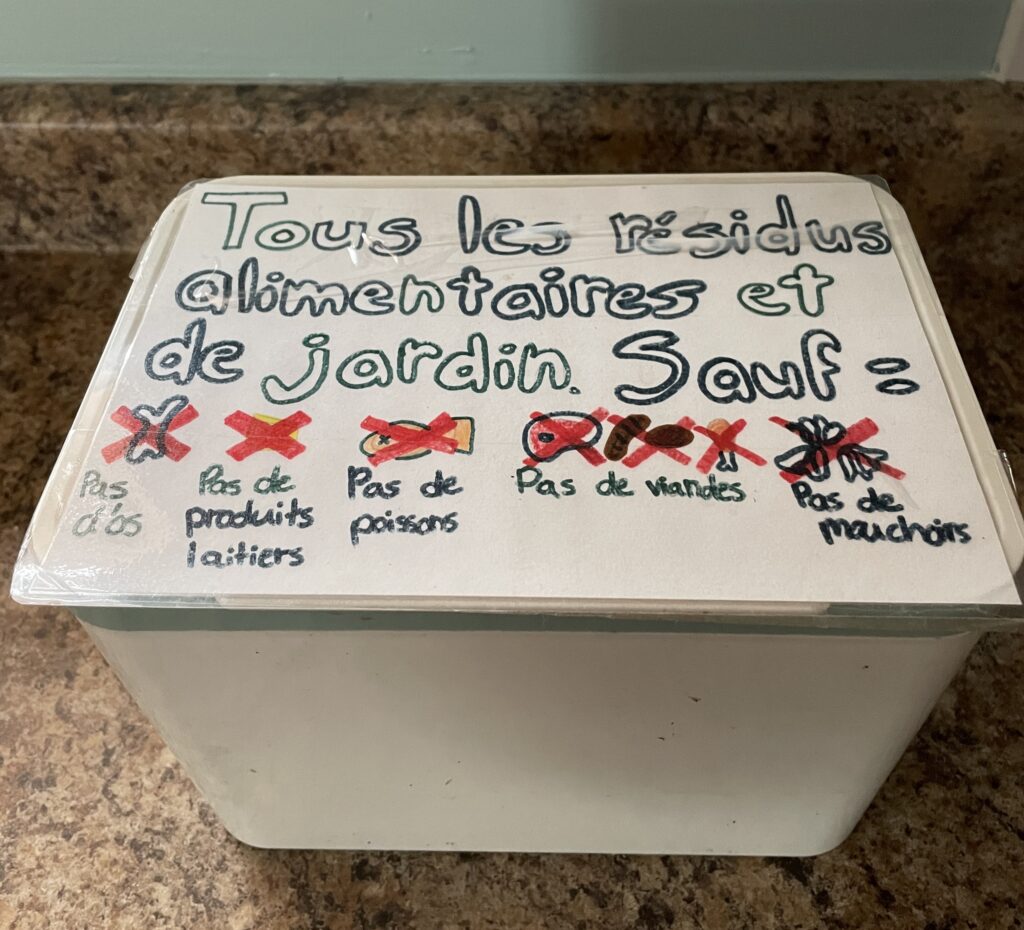
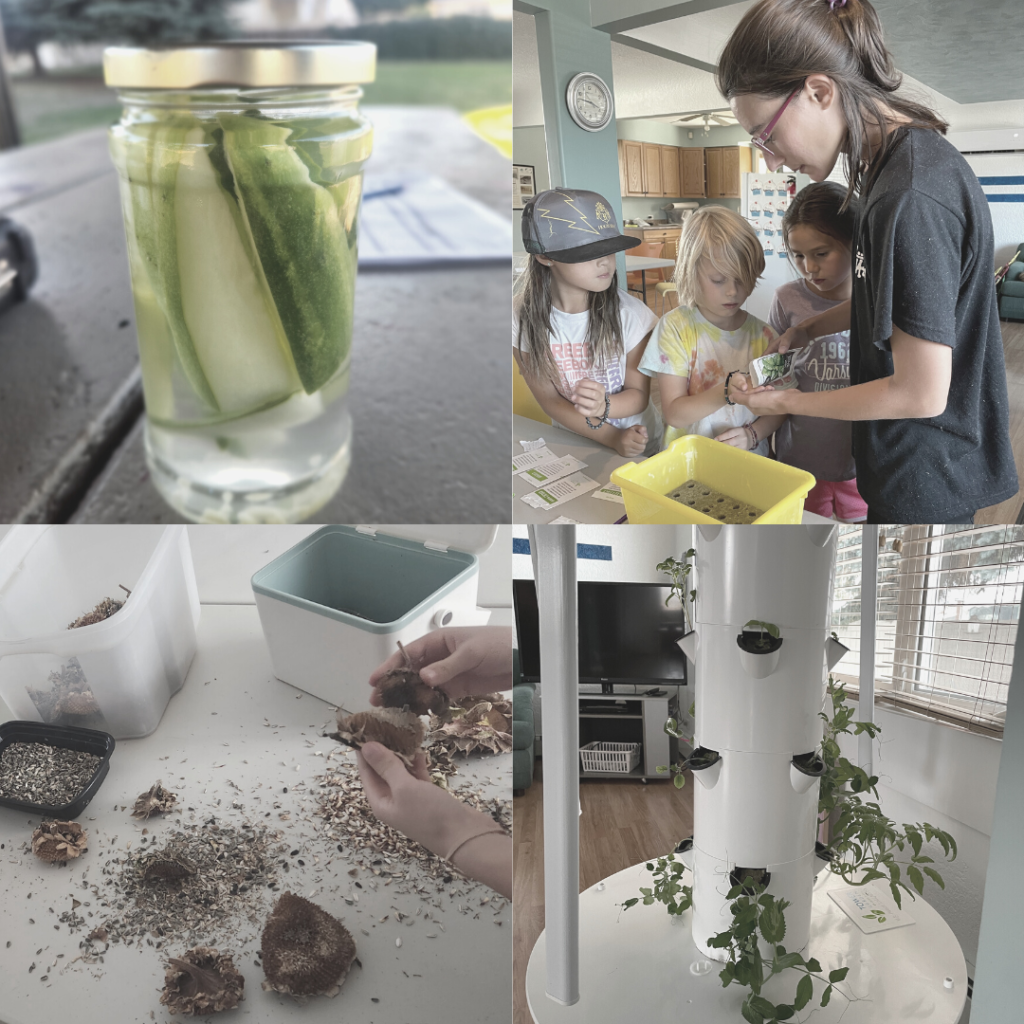
Our Garden
We were lucky to have a large quantity of cucumbers from our backyard garden, so we made homemade pickles. Everyone was able to go home with their own reusable containers. We made homemade sunflower seeds from the garden as well. We did multiple activities with the kids because many steps were needed. So, we dried and scrubbed the sunflower heads. Then, we washed them and boiled them with some salt. Finally, we baked them in the oven. Everyone appreciated a nice fresh snack from our garden.
The kids also learned more about identifying plants from vegetation guides, and specifically on ones which grow in our region.
In preparation of our indoor Tower Garden, the kids also helped plant the seeds in rock wool, ready to grow. We hope we’ll grow some yummy treats ready this winter.
Waste Reduction Week
As a part of Waste Reduction Week, we made little Halloween characters using wrappers we saved from snack time. We also did a community garbage clean-up first with the kids and then with our francophone community. For more information on Waste Reduction Week:

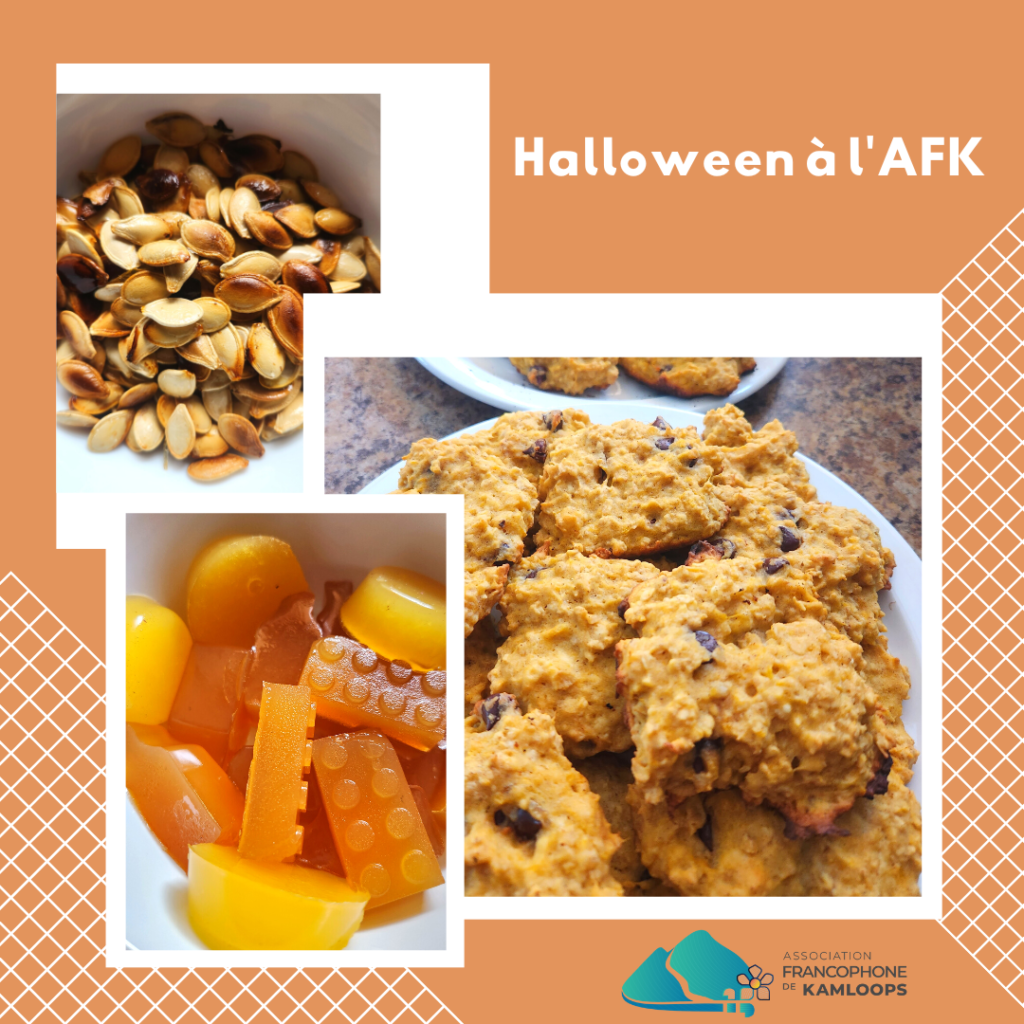
Halloween
What a great find! A little bit before Halloween, the kids participated in making some homemade candies which were vegan and zero-waste. It came from the recipe book Recettes véganes pour gens actifs by Xavier Desharnais and Nicolas Leduc-Savard (2021) from KO EDITIONS.
After Halloween, we reused the guts of our Jack-O-Lantern to reduce our waste. We cooked the pumkpin seeds and made pumpkin cookies, what a delicious treat.
It was a great way to demonstrate to the kids, and to the community as a whole, alternate options to throwing the pumpkin in the trash. We shared this on our social media channels, because once we decorate a pumpkin we should avoid adding to our waste. Also, we took our Jack-O-Lanterns to the City compost after Halloween. For more information on the statistics about pumpkin waste, alternatives to throwing the pumpkin out and possible recipes:
Café Jasette
Together with the francophone community, it was possible to organize modules on environmental topics during each Café Jasette. Also, activities were organized such as the production of DIY Products and the vegetarian supper.
Sustainable Environmental Policy
The AFK commits to:
- Follow the waste management hierarchy principal. The waste management principal is an update on the more commonly used reduce, reuse, recycle. Vanessa has proposed this in French as the 4RV-E, which can be read on the French version of this page.
- Prevent: Do I really need this? Can I do otherwise?
- Reduce potential waste: If I really need it, is it possible to make a more eco-friendly purchase?
- Reuse: Can we make an object last longer by using it in another way? Or, is it in a good enough shape to be sold or donated?
- Recycle: If we absolutely need to get rid of an item, identify the proper disposal method: in the recycling bin, to a local BC Return It depot or to a city recycling centre.
- Recover: Can it go in the compost? Particularly for food waste and other compostable materials, it is much better for the environment to see these items decompose rather than end up in the landfill. See if there are other alternatives to putting it in the garbage.
- Dispose: If nothing else is feasible, this is the last option.
- Purchasing eco-friendly and healthy products according to the best research available while keeping in mind the constraints on disinfectants while abiding to regulations set by the Centre for Disease Control. For all other products, to follow respectable certifications available such as EcoLogo or Safer Choice.
- Dispose all waste in the proper bins – recycling and composting – to minimize the quantity of waste sent to the landfill, including the use of bins to separate materials to be returned to BC recycling depots.
- Reduce vehicular deplacements, optimizing the the routes for and the frequence of necessary shopping trips. Also, promoting carpooling as well as walking or taking public transit whenever the situation permits.
- For events, use reusable dishes and cutlery whenever possible.
- Make all AFK employees aware of eco-friendly actions within the association. Work to sustain these behaviours over time.
- Encourage members to propose eco-friendly and conservational initiatives.
- Update the AFK environmental quality preservation guide every year.
